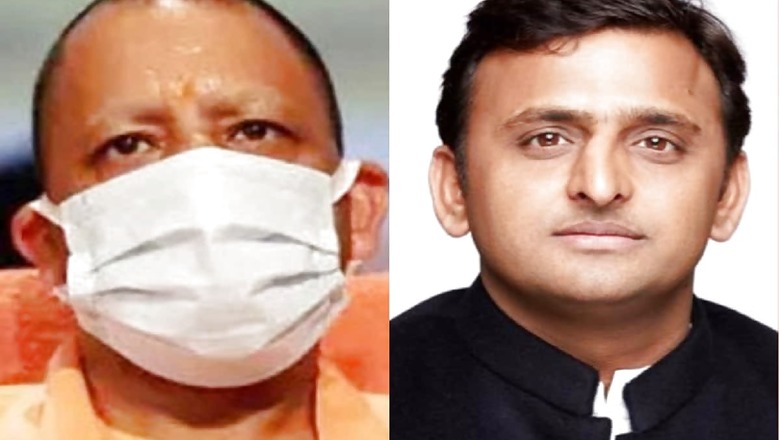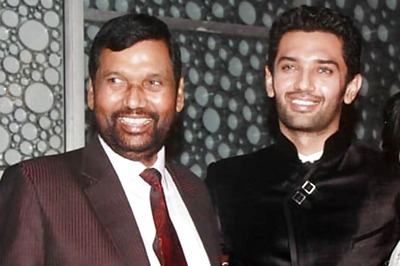
views
Elections for the Uttar Pradesh assembly may be early next year, but attempts to redraw the political landscape have already begun. And in the state so influenced by caste arithmetic, it is the small players, the extras of politics, that can be the “make or break” factor for the mainstream parties. Ahead of the polls, these most backward caste-based political parties have begun their homework and are forcing all, from the ruling BJP to opposition parties, to reassess their strategies.
The aspirations of various castes and sub-castes have been a defining aspect of elections in Uttar Pradesh for long. The past decade, however, has been more about a stronger expression of these aspirations. No one knows this better than the Bharatiya Janata Party. Its success story in the state since the 2014 general elections has been more about handling these caste complexities well rather than Hindutva or any other factor.
BJP and the caste homework
The BJP was able to engineer a strong consolidation of the upper castes, non-Yadav OBCs and the non-Jatav Dalits. The party played well on the conflicting aspirations of various sub-castes and was able to build a strong narrative around the Yadav dominance to lure away the other prominent backward castes. It was also successful in making a dent in the Dalit vote bank of the Bahujan Samaj Party, by projecting the Jatav sub-caste as being the biggest beneficiary of Mayawati’s rule. The BSP chief herself comes from this Dalit sub-caste.
Ahead of the 2017 assembly polls, the BJP made a significant gesture towards the non-Yadav OBCs, particularly the most backward castes by bringing Keshav Prasad Maurya as the president of the party state unit. The formidable caste base that the BJP has built also stood strong against the much-hyped BSP-SP alliance in the 2019 general elections.
Now, in the run-up to the 2022 assembly polls, the caste aspirations are again out in the open. The BJP is faced with the challenge of keeping the flock intact, especially the MBC vote base, which the opposition says has been cheated by the ruling party. Ally-turned-foe Om Prakash Rajbhar, a former minister and prominent backward caste leader, has been busy trying to bring together the different small castes and minority-focused parties.
The Bhagidari Sankalp Morcha led by Rajbhar claims to be a deciding factor on several seats, especially in eastern UP. The Morcha leaders feel none of the bigger parties can sail through without their support. The outfit has kept its door open for the SP and BSP.
Arun Rajbhar of the Suheldev Bhartiya Samaj Party, a key constituent of the Bhagidari Morcha, said, “The BJP has cheated the OBCs. The last assembly elections were fought under the leadership of Keshav Maurya but the chief minister’s post was given to a leader from the upper caste. Our Morcha will ensure the BJP’s defeat in 2022.”
The BJP, however, denies there are any cracks in its base. After winning 66 of the total 75 seats in the recently concluded elections for the zilla panchayat presidents, chief minister Yogi Adityanath said, “The people have continued to have faith in Prime Minister Modi’s leadership since 2014. That faith is still intact and the BJP will repeat its grand success in the 2022 assembly elections as well.”
BJP’s state spokesperson Manish Shukla said that under Samajwadi Party chief Akhilesh Yadav and his father Mulayam Singh Yadav’s rule only the people of a particular caste benefited. “Under Yogi Sarkar, welfare schemes and development has reached to all, cutting across the caste and religious lines,” he said.
SP woos smaller players
On his 47th birthday recently, former CM Akhilesh Yadav made a big statement. He said, “My party is willing to work with the smaller parties to defeat the BJP. We will take such forces on board.” Interestingly, the SP is already in an alliance with the Jat-based Rashtriya Lok Dal, a force to reckon with in western Uttar Pradesh.
Akhilesh is also said to have kept his doors open for the Aam Aadmi Party. His recent meeting with AAP MP Sanjay Singh further fuelled this speculation. The idea is that the party can split the BJP’s votes in urban areas. AAP spokesperson Vaibhav Maheshwari told News18, “Our party is willing to work in a larger non-BJP front, but the responsibility to build such a front rests with the principal opposition force, the Samajwadi Party.”
No doubt in the tough battle ahead, Akhilesh realises the significance of these smaller caste-based political outfits, which can be the deciding factor between a victory and defeat on many seats. Alliances with caste-based diminutive parties can also give him the necessary expansion beyond his Muslim-Yadav vote base.
Opposition divided: BSP vs SP
Akhilesh’s moves are clearly no music to BSP supremo Mayawati’s ears. She herself is in the race to regain the lost caste base. Attacking the Samajwadi Party, she tweeted, “Bahujan and deprived castes should be cautious of the SP’s moves. The party has only exploited them. In 2022 BSP will form the larger unity of the deprived castes and form the next government.”
Clearly, the BSP’s strong positioning and its willingness to reach out to the MBCs and other Dalit sub-castes can be a cause of concern for the Samajwadi Party. In the state where the OBC population is estimated to be around 40 per cent, the non-Yadav, non-Kurmi backward castes constitute a bulk of this segment.
While the Yadavs have been firmly with the SP, the Kurmis shifted to the BJP in 2014 and are still seen largely with it. However, the same cannot be said with certainty about the other backward castes like Mauryas, Rajhar, Nishad, Kashyap, etc, who see themselves as the MBCs and discards in the larger OBC narrative.
It is in this segment where new players are also testing the waters. Bihar’s Vikassheel Insaan Party too has declared that it will contest the UP polls. The party that is an NDA constituent in Bihar is keeping its options of alliances open in Uttar Pradesh.
Mukesh Sahani, president of VIP and minister in the Bihar government, said, “In Bihar, we fought for the rights of the deprived castes. We will take this fight forward in UP and are open to alliances with bigger parties.”
Read all the Latest News, Breaking News and Coronavirus News here.

















Comments
0 comment